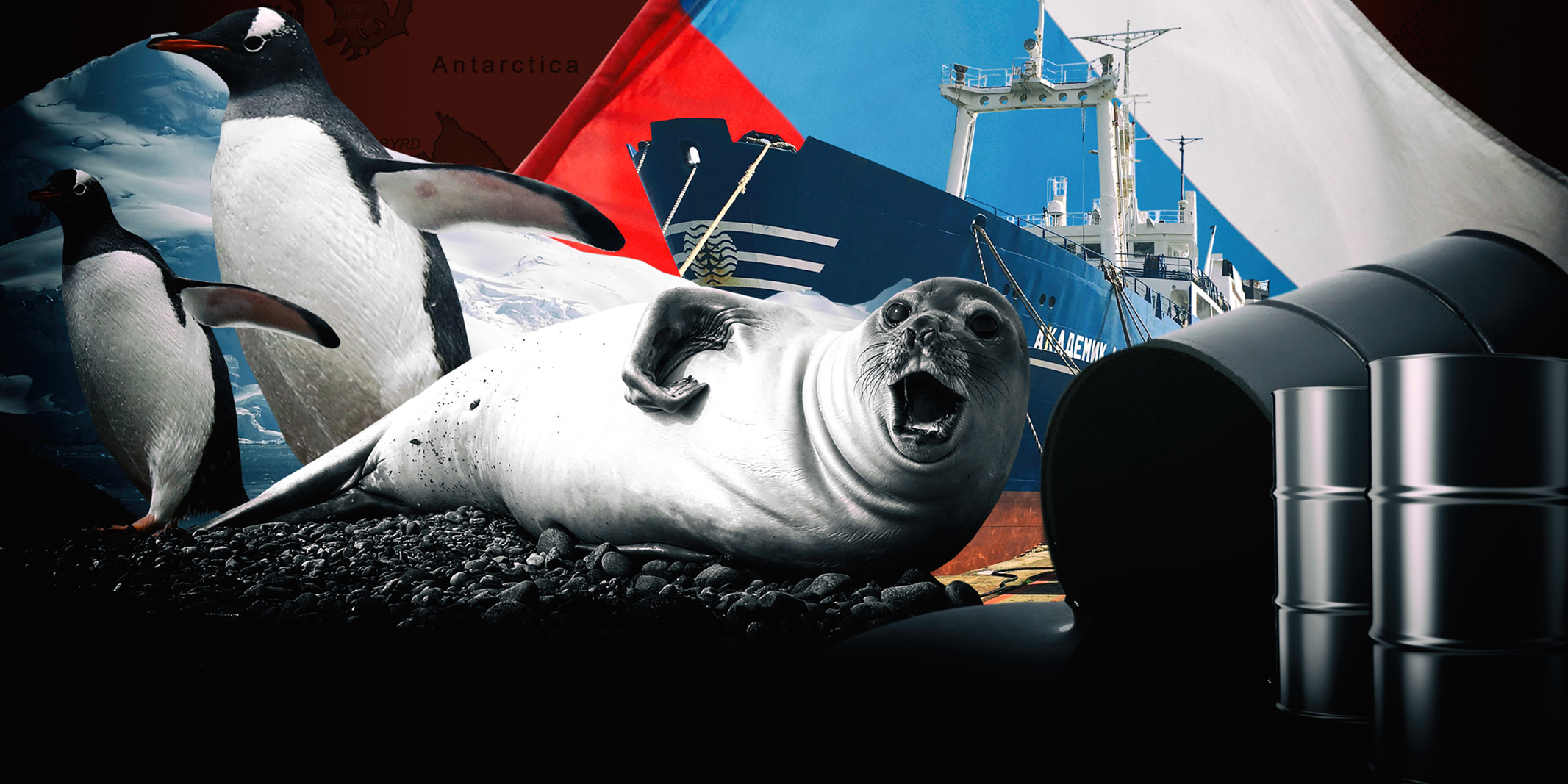China and Russia have reportedly thwarted every proposal at the latest annual meeting of states charged with conserving Antarctica’s fish stocks. The Commission for the Conservation of Antarctic Marine Living Resources once again met behind sealed doors in Hobart, Tasmania — with the two autocracies refusing to back marine protected areas (MPAs). According to reports, their vetoes also weakened krill protections.
A global media storm erupted after the October meeting — asking what may be fuelling great power competition in the so-called race to exploit the Antarctic’s resources.
By following up on the 50 articles Daily Maverick has produced to uncover Russia’s Antarctic oil and gas surveys, The Economist has produced its own analysis.
Thought the Antarctic’s freezing icescapes would escape geopolitics? Think again https://t.co/IbyZH8HEZe ?
— The Economist (@TheEconomist) October 31, 2024
The globally respected weekly news magazine did the complexities surrounding the controversial surveys a rare service by reporting on them with some insight.
The reporter, Carla Subirana Artús, also consulted Professor Alan Hemmings of New Zealand’s Canterbury University; and Professor Klaus Dodds of Royal Holloway, University of London — the polar experts who have played a heroic, illuminating role to help the world understand the implications of the surveys.
Pin the tail on the donkey
Since uncovering the surveys via Cape Town in October 2021, Daily Maverick has always reported that it was East Antarctica that potentially holds some 70 billion tons (500 billion barrels) of oil and gas, which Rosgeo, Russia’s mineral explorer, claims to have identified there.
We’ve also revealed other previously unreported Russian state sources making the same claims.
And yet, earlier this year, world media misunderstood the matter, reporting vast reserves (about 511 billion barrels) in West Antarctica’s Weddell Sea and even the Falklands. That’s a pretty long way from East Antarctica, which faces South Africa, India, Australia and New Zealand.
Since Rosgeo has yet to release any reserve data from these missions, it also remains fully unclear just how much oil and gas may, or may not, be in West Antarctica’s Weddell Sea, which faces South America.
Cutting through the noise
Pontificating over the exact location would be missing the point.
The bottom line? Rosgeo is looking for oil and gas in a precious, wild global commons that seems to be dying as a result of our consumption of these fuels.
Russia even reaffirmed the region’s Article 7 mining ban with 28 other Antarctic Treaty states in 2023. But its mineral explorer is just heading back to Antarctica under the Russian Antarctic Expedition in the 2024/25 season, most likely via South Africa, as it has most years since the ban entered into force in 1998.
What is most important to understand about the Weddell Sea is that Rosgeo has visited this geopolitical powder keg, counter-claimed by Argentina, Chile and the UK, at least six times since 2011: with the explicitly stated intention of assessing its mineral potential, as we uncovered here. (The treaty neither denies nor recognises these territorial claims.)
I asked the Minister whether Russia will face consequences, if as reported, they are doing more than scientific research in Antarctica.
Russia must abide by the rules of the Antarctic Treaty and the Env Protocol that inhibits all mineral and oil development in the region. pic.twitter.com/k31ecVgC9n
— Anna McMorrin MP ????????️? (@AnnaMcMorrin) May 14, 2024
Mirror, mirror on the wall, will Antarctica be a free-for-all?
Also considering other geopolitical flashpoints, such as the limitations of the treaty’s inspection regime, The Economist report reinforces the important point that Rosgeo’s surveys have geopolitical implications. An early resource scramble is possible. Even if those increasingly accessible but remote reserves remain untapped for now, Dodds points out in this report, a “slow erosion of the rules” leaves them unenforceable.
Since we issued our findings, the mineral explorer has repeatedly claimed, here, here and here, that the surveys are legal science under the ban, which prohibits mineral resource activities but allows undefined research.
Of course, not everyone agrees with Rosgeo’s defence. In February 2024, the US Department of State placed Rosgeo’s Antarctic flagship, the Akademik Alexander Karpinsky, under energy sanctions.
The move made the US, the initiating architect of the 1959 Antarctic Treaty, the first country to acknowledge that the Russian activities may be more than routine research.
Respecto de la Antártica, el Estado de Chile tiene una sola posición: La Antártica es y será un continente de ciencia y de paz.
Nos opondremos firmemente a cualquier intento de explotación minera y de hidrocarburos y velaremos por cuidar íntegramente este laboratorio natural. https://t.co/3foRdNrP05
— Gabriel Boric Font (@GabrielBoric) May 24, 2024
A dangerous half truth
The Economist report helps correct persistent and egregious misinformation by underlining that protocol amendments can, indeed, “be passed by a three-quarters majority” in just under 25 years from now.
Some prominent commentators habitually claim that, from 2048, the mining ban can only be lifted by consensus and a regulation pact.
That is a dangerous half-truth.
It takes a simple reading of the treaty’s environmental constitution to see that Article 7 can be reviewed and even lifted as a result of both consensus and majority decision mechanisms, and even a controversial walk-out clause, from 2048.
Rosgeo and its subsidiary firm, the Polar Marine Geosurvey Expedition, have a good idea of where the Southern Ocean’s black gold appears to be — claiming credit for the “overwhelming majority” of work required to identify Antarctica’s potential supergiant oil fields.
The protocol and its ban, which have no expiry date, can be changed or even lifted in the infinite expanse of space-time that unfurls after 14 January 2048.
Lifting the ban would rewrite the future of Earth’s unmined frontier. DM
https://www.youtube.com/watch?v=REeWvTRUpMk





